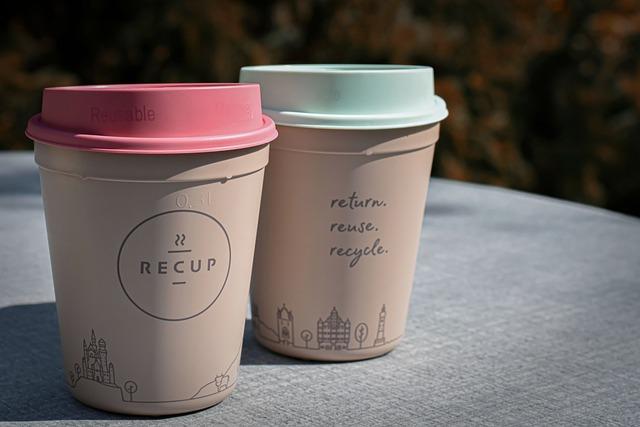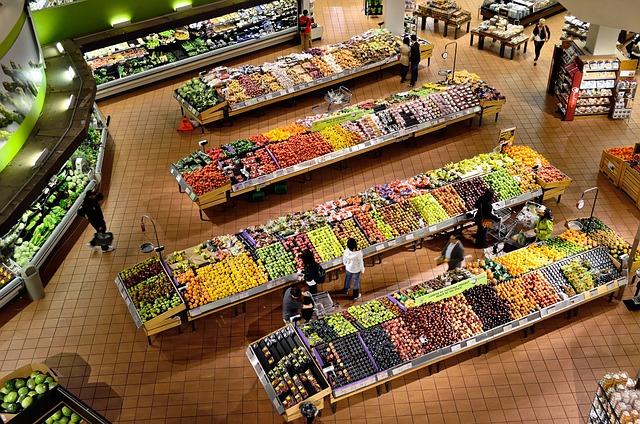Portugals Dedication to Sustainable Packaging Initiatives
As Portugal gears as much as implement a Deposit Return Scheme (DRS) in 2026, the nation showcases its longstanding dedication to sustainability by means of revolutionary packaging initiatives. This novel DRS is predicted to not solely cut back waste but in addition incentivize shopper participation in recycling efforts. By introducing a financial return for recyclable packaging, Portugal goals to create a round economic system, the place supplies are reused and repurposed, finally minimizing environmental influence.
The DRS will primarily give attention to three core packaging classes that contribute considerably to waste quantity:
Plastic bottlesaluminum cansGlass containers
To assist these initiatives, the federal government plans to ascertain a complete framework together with recycling infrastructure, public consciousness campaigns, and collaboration with native companies. The success of this program hinges on energetic neighborhood participation and efficient administration, with a objective of attaining over 85% recycling charges for these supplies by 2028. Efforts may even be made to combine eco-design ideas into packaging manufacturing, making certain that sustainability is prioritized within the creation of recent merchandise.
Understanding the Mechanics of the Deposit Return Scheme

The Deposit return Scheme (DRS) operates as a scientific initiative geared toward enhancing recycling charges and lowering litter, notably within the context of packaging waste. Underneath this scheme, customers pay a small deposit when buying drinks in plastic, glass, or metallic containers, which is then refunded upon returning the empty container to designated assortment factors. This methodology goals to create a round economic system the place supplies are reused relatively than discarded. Key elements of the DRS embody:
shopper Engagement: Encouraging participation by means of monetary incentives.Infrastructure Progress: Establishing handy return places to facilitate quick access for customers.Partnerships with Retailers: collaborating with companies to spice up return charges and streamline operations.
Moreover, the profitable implementation of the DRS depends on efficient communication methods that educate the general public about its advantages and processes. To trace efficiency and adapt the scheme as wanted, mechanisms for gathering and analyzing knowledge on returned containers are important. The foundational targets embody:
GoalDescriptionReduce WasteLower the quantity of recyclable supplies ending up in landfills.Improve Recycling Ratesenhance the share of supplies which can be recycled again into the economic system.Educationinform customers about accountable disposal and recycling practices.
Projected Environmental Affect of Portugals Initiative

the implementation of the Deposit Return Scheme (DRS) in Portugal is predicted to generate vital environmental advantages, primarily by diverting plastic and glass waste from landfills and oceans.By incentivizing customers to return their used containers, this initiative goals to realize a exceptional discount in littering and promote recycling. The projected outcomes embody:
Elevated recycling charges: The DRS is anticipated to raise Portugal’s recycling charge for beverage containers from current ranges to over 90% by 2026.Discount in carbon emissions: By minimizing the necessity for uncooked supplies and reducing waste processing vitality, the initiative will contribute to the discount of the nation’s carbon footprint.more healthy ecosystems: Lowering plastic air pollution will assist shield marine and terrestrial biodiversity, resulting in more healthy ecosystems throughout Portugal.
Furthermore, the scheme is just not solely anticipated to have direct environmental results however may even promote sustainable shopper conduct. Educating the general public about the advantages of recycling and correct waste administration will probably be essential in fostering a tradition of obligation. The initiative outlines a number of strategic targets, together with:
GoalProjected ImpactReduce plastic litterBy 50% inside the first two years of implementation.Improve public awarenessOver 70% of the inhabitants knowledgeable on recycling practices by 2026.Increase native economiesCreation of recent jobs in recycling and assortment sectors.
Shopper Engagement and Participation Methods

As Portugal prepares to implement its Deposit Return Scheme in 2026, fostering shopper engagement will probably be pivotal for its success.To make sure widespread participation,the federal government and stakeholders ought to undertake a wide range of methods that resonate with the native inhabitants. Consciousness campaigns using social media, neighborhood workshops, and college applications are important in informing residents about the advantages of the scheme. Particular incentives equivalent to reductions and contests can encourage customers to return their bottles and cans whereas fostering a way of neighborhood involvement and accountability.
Moreover, establishing suggestions mechanisms will enable customers to voice their experiences and considerations relating to the scheme. This not solely enhances openness but in addition cultivates belief within the initiative. Take into account making a user-pleasant cell app that tracks particular person contributions and rewards participation with factors redeemable for reductions or native merchandise. Such revolutionary instruments won’t solely streamline the return course of but in addition promote a tradition of sustainability and environmental stewardship among the many populace.
Finest Practices from International Deposit Return Schemes

International deposit return schemes (DRS) have emerged as efficient fashions for enhancing recycling charges and lowering litter. Nations equivalent to Germany, Norway, and Canada have applied profitable frameworks that provide useful insights for Portugal’s upcoming initiative. One widespread thread amongst these schemes is the mixing of know-how for monitoring returns, which streamlines the method and enhances person engagement. Moreover, collaborative partnerships amongst municipalities, beverage producers, and retailers are essential in fostering a strong community that helps the DRS. transparency and steady suggestions from customers in regards to the ease of returning containers can considerably enhance participation charges.
One other key to profitable deposit return programs lies in public schooling and outreach efforts. Methods which have confirmed efficient embody neighborhood workshops, promotional campaigns, and the utilization of social media to boost consciousness in regards to the environmental influence of beverage container litter. Establishing clear incentives for returning containers, equivalent to deposit refunds and rewards, encourages increased participation ranges. Furthermore, offering accessible return factors—like devoted reverse merchandising machines—ensures comfort for customers, additional selling a tradition of recycling. Inventive advertising approaches that spotlight the financial and ecological advantages of DRS may help construct shopper loyalty and strengthen the general initiative.
Future Issues for Packaging Laws in Portugal

As Portugal gears as much as implement the Deposit Return Scheme (DRS) by 2026, it’s certainly important to think about the ripple results this initiative could have on packaging laws. Stakeholders, together with producers, retailers, and customers, might want to adapt to a extra stringent framework geared toward selling sustainability. Key elements to look at embody:
Elevated Producer Accountability: Producers might face stricter obligations relating to the lifecycle administration of packaging.Standardization of Supplies: Laws might push for uniformity in supplies to simplify the recycling course of.Shopper Schooling Applications: To make sure compliance, strong schooling campaigns will probably be essential for informing the general public about new practices.
Furthermore, collaboration among the many authorities, companies, and environmental teams will probably be important to forge efficient laws. Potential factors of emphasis for future laws embody:
Regulatory FocusPotential OutcomesMaterial Innovationencouragement of biodegradable and recyclable supplies in packaging.Logistics and InfrastructureInvestment in assortment factors and reverse logistics programs.Market IncentivesPotential subsidies for companies that undertake eco-friendly packaging options.
Wrapping Up
Portugal’s forthcoming implementation of a Deposit Return Scheme in 2026 marks a big stride in direction of sustainable waste administration and environmental safety. By incentivizing the return of beverage containers, the initiative goals not solely to cut back litter but in addition to advertise recycling and useful resource effectivity throughout the nation. With this pioneering strategy, Portugal aligns itself with international sustainability targets whereas fostering a round economic system that advantages each the atmosphere and society. Because the launch date approaches, consideration will probably be centered on how this scheme is developed and refined, setting a precedent for different nations contemplating related measures. The success of this initiative might very nicely hinge on public participation and academic outreach, highlighting the collective accountability in tackling the rising challenge of plastic waste. As Portugal embarks on this formidable journey, the eyes of europe will probably be on its progress, hoping for a mannequin that may encourage lasting change in environmental practices far past its borders.
Source link : https://europ.info/2025/03/27/portugal/portugal-to-launch-deposit-return-scheme-in-2026-packaging-europe/
Writer : Mia Garcia
Publish date : 2025-03-27 19:51:00
Copyright for syndicated content material belongs to the linked Source.


